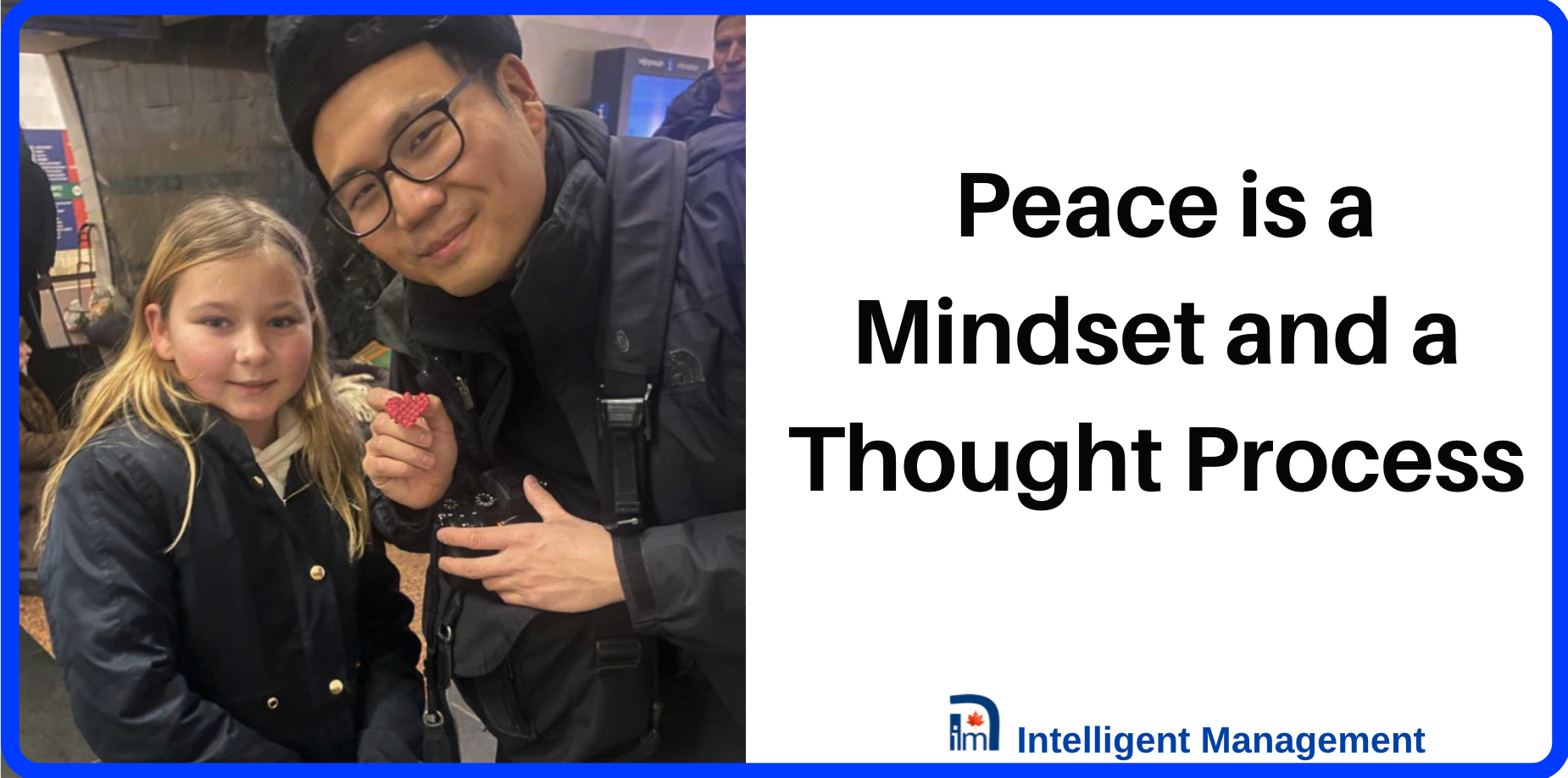
This photo was published yesterday on Twitter by Marcus Yam, a journalist from Los Angeles, who received the heart embroidered by the little girl while they were sheltering in the subway in Kyiv.
For those of us who grew up with parents or grandparents who remembered World War II, the notion of being at war was real and yet remote. We could never have imagined a situation in Europe like the one that is unfolding in Ukraine today.
What has this got to do with an approach to business? Anyone familiar with the work of Dr. W. Edwards Deming and Dr. Eliyahu Goldratt that inspires everything we do at Intelligent Management will know that they represent a whole-system paradigm. The mindset that goes with this paradigm is inherently connected with peace. This is because it recognizes a “big picture” based on interconnections and interdependencies that happen within a much larger system than each separate businesses. Goldratt stressed the idea that value can only really be created when we create value for the entire value chain, not just for ourselves. Deming insisted on the idea of getting away from competition for pieces of a pie. His recommendation, instead, was to create a bigger pie. It is a mindset of collaboration that requires us to think about the needs of others and not just our own if we want to succeed in a sustainable way. This is not idealism. This is what makes most sense.
Peace is a daily activity
We can all do something to promote peace, wherever we are and whatever our circumstances. We can offer direct support to those who need it through donations. But we can do something on a daily basis too. It’s all about how we think. We can learn to think in such a way that we don’t automatically see another person as someone who can get in the way of what we want, or that we can get what we want by taking it from someone else. We can learn to think that collaboration is not a sign of weakness but of strength. We can learn to interdepend with others so we can build something so much greater than what we would achieve by just “protecting our own interests”. We can learn to take responsibility for conscious choices instead of just accepting any status quo. Yes, it can be burdensome but choosing self-determination is liberating.
In other words, we don’t have to just watch and wait for things to play out. There are ways to actively work towards conflict resolution and to maintain and increase peace and prosperity and it starts with our thought process.
We can protect our mental health, and possibly our species, by engaging in the kind of thought process or ‘brainware’ for conflict resolution that fosters peace and prosperity. This can only be enhanced through creating healthy interdependencies and integration among individuals, businesses, and even countries towards a common goal. A common goal, according to the Theory of Constraints, has to emerge from analyzing our deepest drivers, or our needs in terms of our fears (need for control) and our hopes (need for vision) – see Conflict Cloud Thinking Process. These needs are legitimate and must be respected.
A common goal
An accurate and transparent common goal is the most powerful path to conflict resolution and to fuel a pattern of choices and behaviour that not only maintains peace, it creates a virtuous cycle that builds prosperity. The Thinking Processes from the Theory of Constraints strengthen our ability to see the big picture. They’ve been around for over 20 years and have led to achieving extraordinary results. Above all, they train us to focus on the needs of all the parties concerned to achieve win-win always. This is the only sustainable way ahead.
To build a better future, let’s remember that we can all tap into a resource that is freely available but not easily exploited: our human ability to think and act systemically for the common good.

Intelligent Management works with decision makers with the authority and responsibility to make meaningful change. We have helped dozens of organizations to adopt a systemic approach to manage complexity and radically improve performance and growth for 25 years through our Decalogue management methodology. The Network of Projects organization design we developed is supported by our Ess3ntial software for multi-project finite scheduling based on the Critical Chain algorithm.
See our latest books Moving the Chains: An Operational Solution for Embracing Complexity in the Digital Age by our Founder Dr. Domenico Lepore, The Human Constraint – a digital business novel that has sold in 43 countries so far by Dr. Angela Montgomery and ‘Quality, Involvement, Flow: The Systemic Organization’ from CRC Press, New York by Dr. Domenico Lepore, Dr. .Angela Montgomery and Dr. Giovanni Siepe.





Leave a Reply